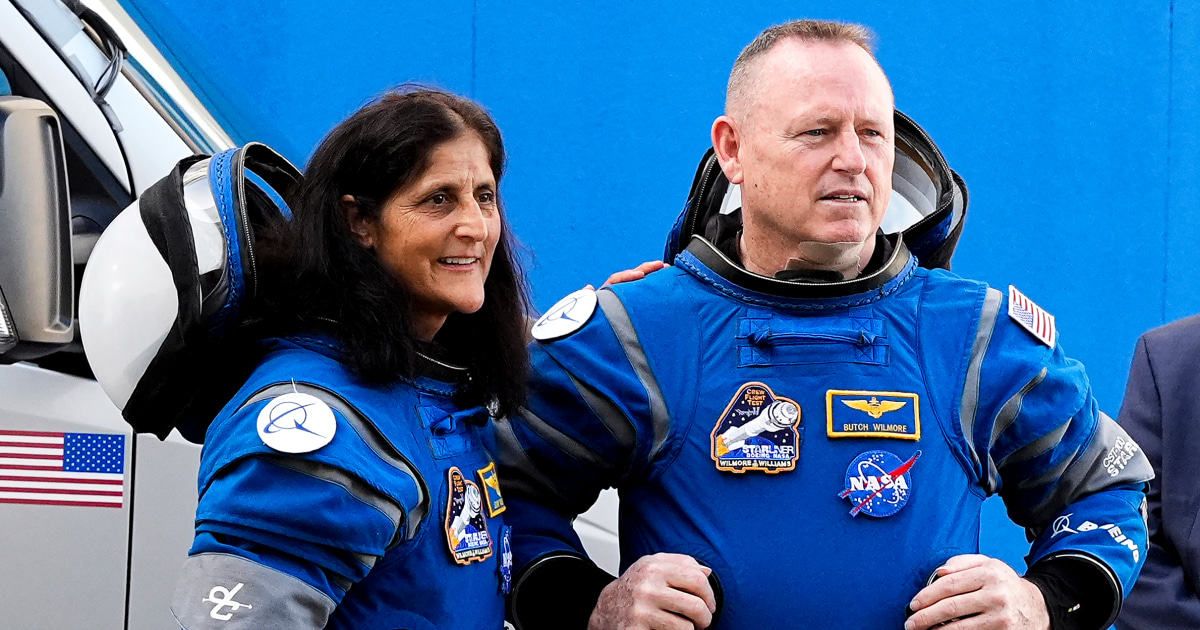Tensions Rise: Astronauts Challenge Musk’s Claims on Flight Delays
A heated dispute has emerged between seasoned astronauts and Elon Musk regarding allegations that political factors contributed to delays in a crucial flight back to Earth. As both sides present their arguments, the implications for space travel and corporate accountability come into sharper focus. This ongoing dialogue not only highlights the complexities of modern space missions but also raises questions about transparency and responsibility in the aerospace industry.
The Background of the Dispute
The conflict stems from the recent delays surrounding a SpaceX mission designed to bring astronauts back home after an extended stay on the International Space Station (ISS). Musk, the CEO of SpaceX, has publicly attributed these delays to various political hurdles, suggesting that governmental red tape has impeded the timely execution of the mission. This statement, however, has drawn sharp criticism from experienced astronauts who have countered that the delays were primarily due to technical challenges rather than political issues.
Space missions are inherently complex, involving not just engineering and technology but also intricate scheduling and coordination between multiple agencies, including NASA and international partners. The astronauts’ pushback against Musk’s assertions reflects a deep-seated concern about how such narratives could undermine public trust in space exploration initiatives.
Astronauts’ Perspective on Flight Delays
Several astronauts have taken to social media and interviews to express their frustrations regarding Musk’s claims. They argue that attributing flight delays to political factors oversimplifies the situation and detracts from the real issues at hand. Here are some key points raised by the astronauts:
- Technical Challenges: Many astronauts emphasize that the delays are rooted in the challenges of developing and testing new technologies. Space travel involves rigorous testing and validation, which can frequently extend timelines.
- Safety Concerns: Astronauts argue that safety is paramount in space missions. Delays that prioritize thorough checks and balances should not be misconstrued as failures but rather as necessary precautions.
- Collaborative Efforts: Astronauts stress the importance of collaborative effort in missions. They point out that blaming delays on political issues ignores the contributions and efforts of various stakeholders working diligently behind the scenes.
Musk’s Stance and the Corporate Narrative
Elon Musk has cultivated an image of a visionary leader who thrives on disruption. His approach often includes bold claims, which can sometimes overshadow the nuanced realities of space exploration. Musk’s assertion that political factors are to blame for the delays mirrors a strategy to galvanize support and maintain a narrative of innovation amidst setbacks.
However, this narrative can be problematic. By shifting the blame to politics, Musk risks alienating those who have dedicated their lives to space exploration. Furthermore, it raises ethical questions about corporate accountability in the aerospace sector. When corporate leaders make sweeping statements, the repercussions can ripple through public perception and policy.
The Broader Implications for Space Travel
The tension between Musk and the astronauts underscores a broader concern regarding the future of space travel. As private companies like SpaceX take on more prominent roles in space exploration, the dynamics between corporate interests and scientific integrity become increasingly crucial.
- Public Trust: The public’s trust in space missions is vital for continued support, funding, and interest in exploration. If corporations prioritize narratives over transparency, they risk eroding that trust.
- Regulatory Oversight: The debate highlights the need for robust regulatory frameworks that can ensure accountability while fostering innovation. Striking the right balance between oversight and freedom is essential for the growth of the space sector.
- International Collaboration: Space exploration is a global endeavor. Political narratives can complicate international partnerships, which are crucial for the success of missions beyond Earth.
What’s Next for SpaceX and the Astronauts?
As the dispute unfolds, it remains to be seen how SpaceX will address the astronauts’ concerns. Will Musk adjust his messaging to foster a more collaborative atmosphere? Or will the narrative continue to shift blame onto external factors? The outcome of this dialogue may influence the future of corporate practices in space exploration.
In the immediate term, the astronauts involved are focusing on their missions and ensuring the safety of their peers. They continue to advocate for transparency and collaboration, urging stakeholders to work together rather than succumb to divisive narratives.
Conclusion: A Call for Accountability and Unity
The tensions rising between astronauts and Musk over flight delays serve as a reminder of the challenges facing the burgeoning space industry. As we push the boundaries of exploration, it is essential to foster an environment of accountability and unity. Space travel is a collective effort, one that requires the expertise, dedication, and collaboration of all involved.
Ultimately, how this dispute is resolved may set a precedent for future interactions between corporate leaders and the scientific community. As space exploration continues to evolve, the lessons learned from this situation could shape the trajectory of human endeavors beyond our planet.
In the spirit of exploration and innovation, let us hope for a future where transparency prevails, and the extraordinary potential of space travel is realized for all humanity.
See more Future Tech Daily

